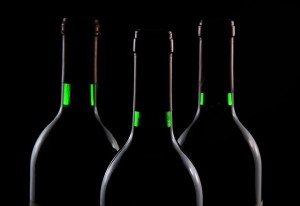Written by Seven Hills Hospital clinical team member, Erica Smith, MA, NCC
 Struggling with an addiction to drugs or alcohol can elicit countless obstacles to an individual’s existence. When an addiction to a substance has developed, it will ultimately begin to consume a person’s every waking thought, resulting in that person suddenly placing things that may have once been a priority onto the back burner.
Struggling with an addiction to drugs or alcohol can elicit countless obstacles to an individual’s existence. When an addiction to a substance has developed, it will ultimately begin to consume a person’s every waking thought, resulting in that person suddenly placing things that may have once been a priority onto the back burner.
When this happens, relationships can begin to deteriorate, occupational failure can ensue, job loss can become a reality, financial strife can take over, and a person’s physical health can become irreversibly destroyed. Once the devastating cycle of addiction has begun, for many, it can seem impossible to cease without professional help.
How Dual Diagnosis Disorders Compound the Addiction
While battling a chemical dependency problem in and of itself can be a monumental challenge, there are many individuals who are plagued by the added component of suffering from symptoms of a mental health condition at the same time. This occurrence, of which is formally recognized as a condition known as dual diagnosis, is believed to affect approximately 8.9 million people in the United States each year.
Yet, while there are many, many individuals who suffer from dual diagnosis concerns, the specialized approach to dual diagnosis treatment is a relatively new concept. Historically, people who were experiencing symptoms of a mental health condition, such as depressive episodes, severe mood swings, delusional behaviors, or panic attacks, would receive treatment solely designed to address those symptoms.
What Happens When Only the Addiction Is Treated
 Similarly, individuals who were struggling with substance abuse concerns would receive treatment that was solely designed to address their dependence on drugs or alcohol. When symptoms of both mental illness and substance abuse were present, the typically accepted practice of treatment involved stabilizing patients in their chemical dependency prior to having them engage in treatment for the symptoms they were experiencing as a result of mental illness.
Similarly, individuals who were struggling with substance abuse concerns would receive treatment that was solely designed to address their dependence on drugs or alcohol. When symptoms of both mental illness and substance abuse were present, the typically accepted practice of treatment involved stabilizing patients in their chemical dependency prior to having them engage in treatment for the symptoms they were experiencing as a result of mental illness.
In other words, patients would ultimately have to achieve sobriety prior to being afforded the opportunity to receive treatment for their mental health conditions. When this was the case, the final result meant that countless individuals never received the help that they needed.
How Dual Diagnosis Treatment Methods Have Changed for the Better
Fortunately, today there exists options for treatment that include a dual diagnosis approach. By offering patients this integrative treatment method, individuals are able to receive the care they need in order to overcome their addictions while simultaneously taking part in appropriate therapeutic interventions that are tailored to address their mental health concerns.
In properly licensed dual diagnosis treatment programs, the clinicians working with patients have specialized training in the treatment of both addiction and mental healthcare, therefore providing patients with access to professionals who can help them address all of the concerns that are negatively impacting their lives.
When a Relapse Occurs
 While dual diagnosis treatment has been instrumental in helping to save the lives of many, there will inevitably be setbacks along the way for some. One of the most difficult setbacks that a person struggling with dual diagnosis may face is that of relapse.
While dual diagnosis treatment has been instrumental in helping to save the lives of many, there will inevitably be setbacks along the way for some. One of the most difficult setbacks that a person struggling with dual diagnosis may face is that of relapse.
Relapse occurs when an individual has been able to achieve and maintain sobriety from drugs and/or alcohol, yet then returns to his or her use of the desired substance. Relapse can include a one-time setback in which an individual finds him or herself struggling to overcome a moment of overpowering cravings, only to then fully resume on the path of recovery, or it can involve a repeated pattern of returning to the use of drugs or alcohol.
In either scenario, the setback of relapse can be incredibly demoralizing for the person in recovery, which is why taking steps to prevent relapse during the treatment process is of the utmost importance.
Learning New Ways to Think and Cope
When an individual is engaging in dual diagnosis treatment and is in the first stages of recovery from addiction, he or she is going to have to learn new ways of thinking, new ways of feeling, and new methods for dealing with problems. These are crucial aspects that must be addressed at the beginning of and then throughout the course of the treatment process in order to help prevent future relapse.
By working with people on learning new ways to manage their thought processes and helping them discover new ways of handling daily stressors, clinicians can assist people in developing a sense of confidence in their recovery, ultimately helping them learn how to lean on their own inner strengths when presented with the temptation to use in the future.
Not Treating Mental Health Can Increase the Risk of Relapse
 Individuals who are struggling with dual diagnosis concerns may be somewhat more susceptible to relapse if the symptoms of their mental health condition are not properly managed or cared for.
Individuals who are struggling with dual diagnosis concerns may be somewhat more susceptible to relapse if the symptoms of their mental health condition are not properly managed or cared for.
For example, if someone is battling symptoms of bipolar disorder while also struggling with an addiction and he or she decides to stop taking the medication that was prescribed in order to manage those symptoms of bipolar disorder, he or she is more vulnerable to returning to the abuse of his or her drug of choice as a means of self-medicating the distressing symptoms that are being experienced.
For this reason, it is especially imperative that individuals who are engaged in dual diagnosis treatment receive the ongoing support needed to maintain the recovery goals they achieved while in treatment. Examples of such ongoing support may come in the form of ongoing individual therapy sessions with a counselor or therapist or participation in weekly, bi-weekly, or monthly support groups, such as Alcoholics Anonymous or Narcotics Anonymous.
Treatment Options for a Dual Diagnosis
While the presence of both mental illness and chemical dependency concerns can leave many people feeling hopeless about their futures, it is important to understand that there are dual diagnosis treatment options available that can help prevent the cycle of destruction that can be elicited by the combination of these conditions.
Resources:
[1] http://www.dualdiagnosis.org/
[2] http://www.dualdiagnosis.org/dual-diagnosis-treatment/
[3] http://www.easyread.drugabuse.gov/what-is-relapse.php
About the Author:
This blog was written by Seven Hills Hospital clinical team member, Erica Smith, MA, NCC. Erica has several years of experience working in the treatment field as a clinical therapist and has her Master’s degree in Clinical Counseling from the American School of Professional Psychology.
About Seven Hills Hospital:
As a leading provider of psychiatric and substance abuse treatment, Seven Hills Hospital offers services for adolescents, adults, and older adults who are in need of compassionate care in order to overcome the struggles they are facing.
The team of highly skilled therapists, board certified psychiatrists, and around-the-clock medical staff ensure that everyone who receives treatment at Seven Hills Hospital receives the most optimal care possible so that each and every one of their needs are met and concerns are addressed in a comprehensive manner.
The opinions and views of our guest contributors are shared to provide a broad perspective of addictions. These are not necessarily the views of Addiction Hope, but an effort to offer a discussion of various issues by different concerned individuals.
We at Addiction Hope understand that addictions result from multiple physical, emotional, environmental, and genetic factors. If you or a loved one are suffering from an addiction, please know that there is hope for you, and seek immediate professional help.
Published on April 21, 2015
Reviewed and Updated by Jacquelyn Ekern, MS, LPC on January 7, 2021
Published on AddictionHope.com
